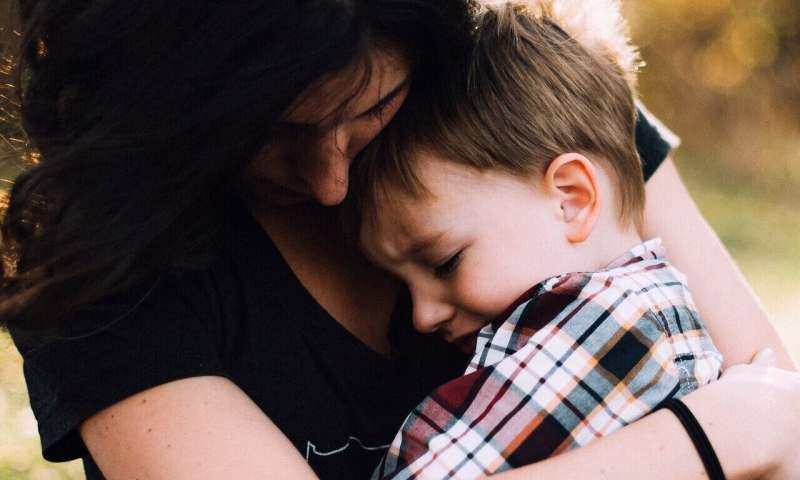
The number of deaths from the coronavirus continued to rise in the United States this week. By midday Tuesday, more than 25,000 Americans had died from COVID-19, the highest reported death toll in the world.
According to the Centers of Disease Control and Prevention, 78% of deaths occurred in those age 65 and older. Children are generally safe from the disease’s physical risks, but many could lose a grandparent or someone else who’s important to them. That’s why it’s important to be prepared to talk about grief with even young kids, said Bob Jann, a child psychologist in Bucks County.
“The loss of a grandparent creates a kind of loss children are unaccustomed to experiencing,” he said. “They often don’t know how to deal with feelings they’re having, and parents should explain how grieving makes people feel better.”
According to the American Academy of Child and Adolescent Psychiatry, children who have problems with processing grief may experience extended periods of depression, inability to sleep, or a sharp drop in school performance. Having conversations with children now about the possibility of losing a close family member can better prepare them emotionally, said Gail Karafin, a certified school psychologist based in Doylestown.
If a child overhears conversations a parent is having with doctors or relatives on the phone, it’s good to address any questions the child may have afterward, Jann said.
“You can say something like ‘Grandma is getting sicker in the hospital and the doctors are trying very hard to help her,’ ” he said. “That way, the child has some kind of expectation that all is not going well, even though you’re not giving them the same kind of detail. Don’t send children out of the room, because it could make things worse.”
One thing parents should keep in mind is that children grieve differently, said Karafin. If they’re really young, they might not understand the permanence of death. In that case, calm conversations about how doctors are trying very hard to make their grandparents or parents healthy again can be helpful. But no matter how children react, parents should try to maintain a sense of normalcy and tell them it’s OK to feel the physical effects of worry or sadness like stomachaches or trouble sleeping.
“Children will need the opportunity to discuss their feelings, and it’s important for parents or parental figures to be a role model to the child as the family endures stress at this time,” Karafin said. “It’s important to convey to the child that there is someone there to take care of them, to love them. If their parents are very distressed, it’s going to increase stress on the child.”
Instead, she said that conversations should focus on how the person who died loved and cared about the child, so they can move forward with a positive mind-set.
It’s also helpful during those conversations to be as open and frank as possible without using euphemisms, like saying someone “went to sleep,” since kids can be extremely literal, Jann said.
It’s important to make sure children know they’re not alone during the grieving process, said Mary Fitzgerald, CEO of Eluna Network, a Philadelphia-based nonprofit that supports children and families affected by grief.
“When kids are kept in the dark, they have more anxiety and fear,” Fitzgerald said. “If you give them permission to grieve, to share their emotions and open up a little more, and take the stigma out of talking about this in a safe and supportive environment, it can help them develop resilience.”
Fitzgerald recommended taking cues from children about what they’re worried about, instead of bringing up conversations about grief when they’re not ready to talk about it yet.
“You want to be age appropriate,” she said. “As adults, whether we are parents or guardians, we should focus on being reassuring and let kids know what we’re doing to keep them safe.”
Having a small memorial ceremony in a family setting during a time when traditional funerals are near-impossible could be helpful for children, Jann said.
Source: Read Full Article
